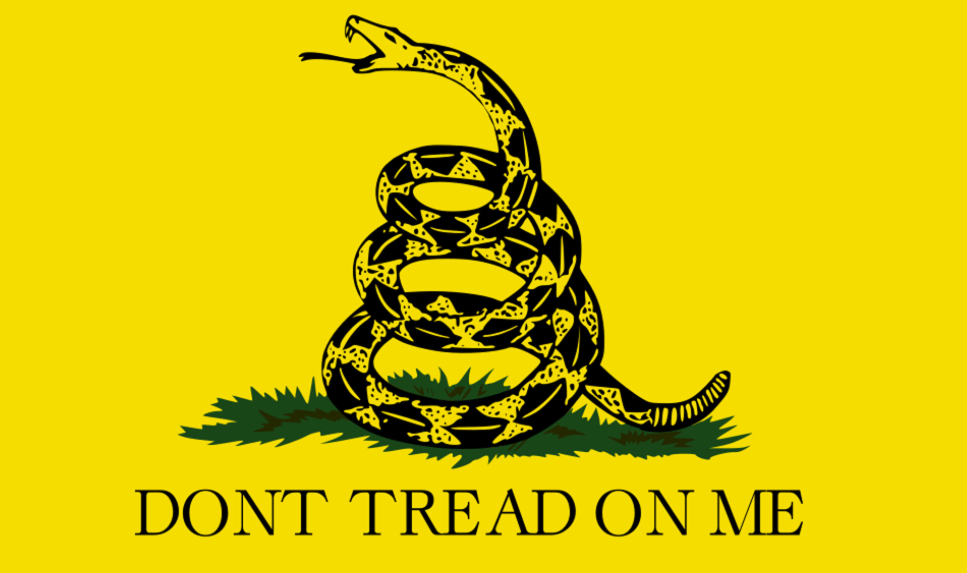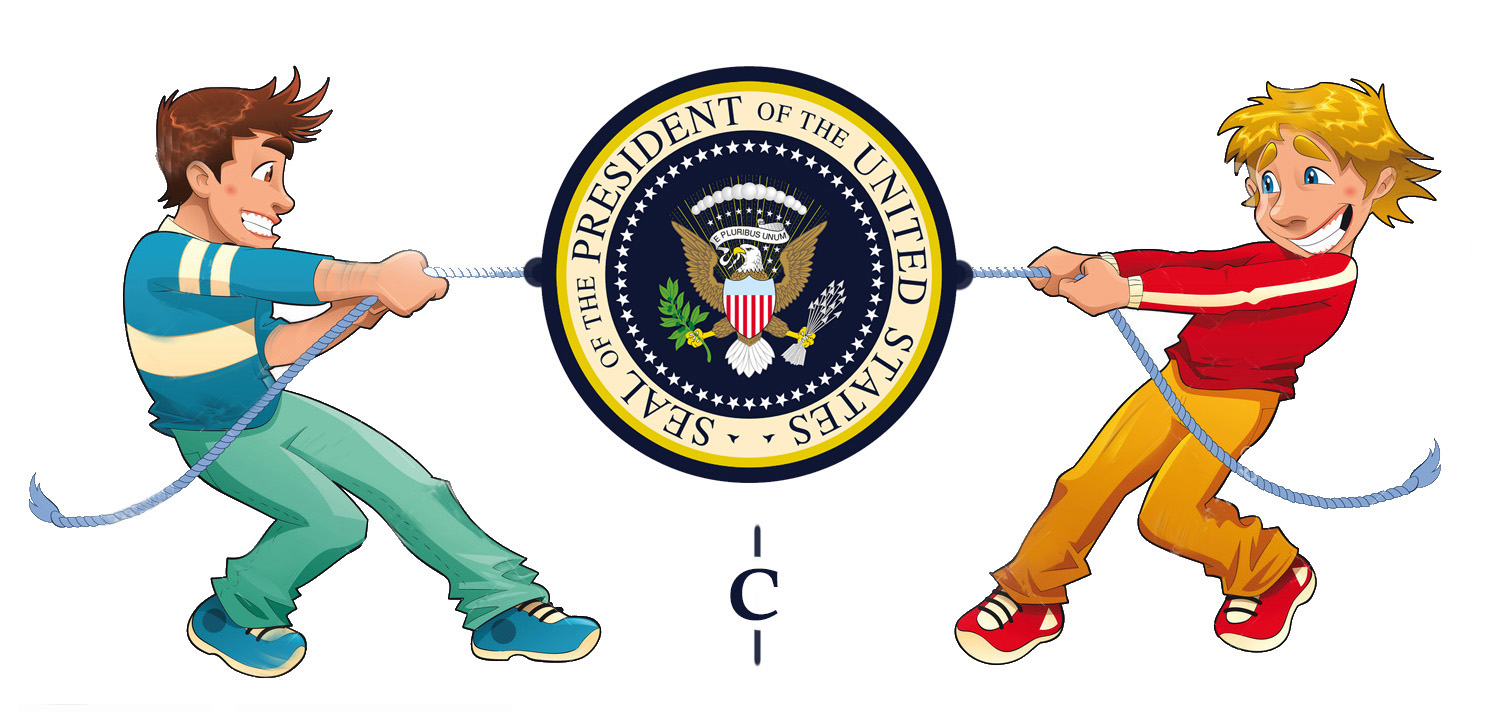
Some have asked me to explain how it is that I came to be a Libertarian and how could I (??!!) as a Christian adopt such a political view (see point 14 below).
Here is the first answer: The path to becoming a libertarian was one of becoming more and more aware and concerned regarding the immoral actions of governments in general and sadly and specifically our very own government (for an example please see my blog: Please – Not Again!). Sadly, I somehow had along the way in my life implicitly accepted that government somehow had special license to do things that were clearly wrong for individuals (theft, murder, torture, deception) and rationalized a lot of moral concerns about government away. Sad to say it was the Bush administrations (egads! – my own party) that really got me concerned. After years of consternation I became a Libertarian about 5 years ago and so registered. It was the confluence of a lot of reading and getting educated and then seeing that it made tremendous sense – morally and practically. Previously, I had assumed that all Libertarians were basically foil-hat drunk anarchist libertines (yuch – disgusting!). But one amazing man – Ron Paul – really challenged my thinking. Sure, many of my fellow Republican’s wrote him off and dismissed him with labels such as “isolationist” (the ultimate Neo-Con insult). But when I listened to him and read his books and other libertarian authors it was like a light turning on. Not only was this a man of immense intellect and unsurpassed integrity, but here was someone who clearly and wisely articulated what was so disturbing to me about our government (on both sides of the aisle), while offering a compelling and coherent political philosophy that was wise, moral, and consistent with my Christian faith. Interested? Start here: The Revolution: A Manifesto by Ron Paul.
One particular moral epiphany, that in retrospect is so obvious, formed a copernican revolution in my political thinking:
What is morally wrong for a person to do is also wrong for a group and wrong for a government.
Lots more on that coming up. So – that is a snap-shot of what led me to become a Libertarian.
The rest of this blog answers the second question: “What do Libertarians believe and how can you as a Christian be one?” What follows is my summary of what I believe as a Libertarian and as a Christian who is a Libertarian (I could not be the former without consistency with the latter). Here is my own manifesto if you will – in 14 points (I know, it bugs me too – I need one more point).
- What is morally wrong for a person to do is also wrong for a group and wrong for a government.
A person cannot harm or steal from another person. Neither can a group of people do so (we call such a group a gang or mob). Neither can a group that has a governing role that is granted to them. Neither can a group that asserts a governing role against the will of the governed. The same moral standard applies to all people, whatever the quantity, whatever the role. When I fully acknowledged that our government (whether left or right) often and intentionally does what is wrong for individuals to do, that was the turning point for me to seek a more moral philosophy of government which led me to embrace Libertarianism. - People have the right not to be aggressed against – to be hurt, killed, robbed, lied to, deceived, or stole from.
These are rights granted to us by God or (if you will) endowed by natural law. As a Christian I find them explicitly in the moral law as summarized in the 10 commandments. These rights are inalienable as Thomas Jefferson put it. That is, they are not removable. Government must bow before the same moral law as the people: do not murder, steal, lie, or harm. - It is wrong for a person, group, or government to aggress against peaceful people
We cannot hurt, kill, lie, cheat, or steal. Libertarians summarize this as the nonaggression principle – it is wrong to aggress against a peaceful person. The non-aggression principle is the basic statement of libertarianism in general, that people should be allowed to do whatever they wish so long as it they do not execute aggression upon another person. Aggression is defined as the initiation of force against another person. If I, as an individual, do not have the right to force people to stop action X (because action X is not aggressive in nature), then neither does a group of people, and neither does a government. Governments do not have the right to regulate non-aggressive behavior. Self-defense, however, is not aggression because it is a response to prior aggression. - A person, group, or government may only aggress upon a person if and only if it is necessary to defend imminent threat to life, liberty, or property.
However, anyone using aggression in defense or punishment is subject to assessment. Was the action both necessary and reasonable in defending against aggression? - We do not have a right to health, riches, economic equality, influence, reputation, etc...
These things are good and are generally desirable for ourselves and for others. But we do not have a right to them (these are sometimes called positive rights). To exert that any of these are a right would require that others give up their life, time, talent, or possessions to satisfy our desires. This would be aggression against that person and would be wrong (number 2). It is wrong to hurt someone or take their stuff in order to benefit ourself or others, even if the cause is noble. - We as people do have a moral obligation to be merciful, generous, and promote peace – but we cannot do so aggressively.
We are accountable to God to so love and care for others. However, as we obey God to be generous, loving, and peace promoting, we must be so without aggressing on any other person and violating their negative rights (the right to not be aggressed against is called a negative right) . As an example, we have no right to steal from a person in order to give to another – even if that person is in great need. We must only give of our own resources and/or request that others give of their resources. But we cannot use force or aggression to compel another to do good. We cannot steal, harm, kill, lie, deceive in order to achieve a good. It has been wisely said: “To reach into another man’s pocket for charitable resources against their will is not charity – it is theft”. - Governments are formed by the people and they govern and derive their existence and authority from said people and are responsible to the people and God not to violate or cause to violate the moral law.
A government that aggresses against the life, liberty, or property of its people is immoral and illegitimate. - Governments have strictly limited roles and authority.
Governments are only legitimate when they serve the purpose of preserving life, liberty, and property. That is to protect the God given rights of people. Governments that move beyond this legitimate authority move from the role of proper servant to tyrant. - Governments may not use force to transfer property from one person or group to another.
Nor can we enable government to do so on our behalf by vote or proxy. Democracy can be used to select governments for their rightful purpose. But it cannot be used to legitimize the aggressive actions of governments. Democracy can be just as evil as monarchy, republic, socialist state or any other form of government if it commissions or allows government to act immorally and aggressively. - People are not slaves that are unconditionally obligated to remain subject to a government.
We are not so obligated as either individuals or groups. That would be slavery. There is no social contract by which any person is born indebted to remain subject to a government due to any circumstance of birth, including the location of one’s birth. Social contract theories are invalid and in fact violate God’s moral law in compelling slavery of one person or group to another. An excellent treatment of this topic is: The Problem of Political Authority: An Examination of the Right to Coerce and the Duty to Obey by Michael Huemer. Although it may be wise and prudent to tolerate and submit to wrongful government it is not a strict moral requirement to do so (Romans 13 for example is sometimes misinterpreted to assert the necessity to submit to an evil government). By the way: The Constitution of the United States did not dissolve state sovereignty. The constitution was a contract made between the states to set-up a Federal Government with limited and specific powers. It was not the dissolution of state sovereignty with replacement in the form of the federal government. In fact, some of the states in their ratifying conventions were explicit in asserting their right to withdraw from the union if they ever so wished. - We are humbly responsible before God for any separation from Government that we undertake.
Wisely, any such separation should only be undertaken if the government forsakes its proper role of defending life, liberty, or property or if the government aggresses against those human rights. Prudence should cause us only to so separate under extreme or intolerable conditions. To do so lightly can cause unjustified suffering and loss. See the preamble of the Declaration of Independence for an eloquent pronouncement of these principles. - The states are the creators of the Federal government and are responsible to judge if the Federal government has gone beyond its rightful authority.
It is not the role of the Federal government to interpret and justify its own power. The supreme court dos not have this power in the constitution. Its power per the constitution is limited to issues between states or citizens of separate states that arise (read it!). The states did not and would not allow their creation (the federal government) to define itself. If a government exceeds its rightful authority the people and local governemnts reserve the right to not comply with Federal directives or laws. The states within the US have this authority. - These principles are consistent with Christianity (more so than the principles of conservatives or progressives).
Both left and right often aggress against peaceful people: Progressives typically aggress against property of peaceful citizens so as transfer wealth from one group to another. Conservatives aggress against peaceful people to punish non-aggressive behaviors that offend them.. Neo-conservatives aggress upon citizens and foreigners alike in conducting aggressive wars in the name of spreading democracy or “our way of life”. Socialists aggress upon private property to equalize wealth. All of these are statists who view the state as superior to individuals and that is justified to use force to control peaceful people. It is only Libertarians have a sound moral basis for government that requires governments as well as individuals to act justly. It recognizes and affirms that natural law or God’s laws are above all people, groups, and governments. - To be a libertarian is not to advocate or support immorality.
Yep – I hear the rumbling in your soul. Indeed, many think that to be a Libertarian is to be a libertine – that is someone who equally affirms any life style or behavior and would in fact actually advocate it. Although that is sadly true of a few libertarians, it is quite incorrect to equate non-aggression with approval. For example, I am against and would never advocate: substance abuse, infidelity, selfishness, addiction, narcissism, vulgarity, watching dirty movies, etc… However, these are not aggressive actions that deprive another person of life, liberty, or property. Thus, although I am against them I would not make them illegal or punish them via fine, imprisonment, loss of freedom, etc. More specifically, I am personally against someone using meth or cocaine or cannabis, but I am also squarely against laws that result in the punishment of voluntary drug use or voluntary drug trade. Prohibition was a big national mistake. The drug war is version 2.0. The non-aggression principle enables a pluralistic society where each person can own their own life and pursue their own happiness. Freedom of speech, religion, lifestyle, association, safety, security, etc.. are only secured for us if we embrace non-aggression. Governments that go beyond preservation of life, liberty, and property – and aggress upon life, liberty and property, even for professed noble purposes – become ignoble tyrants. Current examples: no fly lists of those government defines as suspicious, the Patriot act, civil asset forfeiture, Obamacare … Simmer down please – just think about it.
It is likely that you are not real happy about this, believe me – I was there too. Please have a favorite beverage and start reading some good books on Liberty and Libertarianism.
A very good podcaster on Liberty is Jason Stapleton (Jason Stapleton.com). Here is his primer on What is a Libertarian?
In an upcoming blog I will revisit these principles as I apply them to the job description for the president of the united states (See previous bog: Help Wanted : A Constitutional President).
All for now – Will






